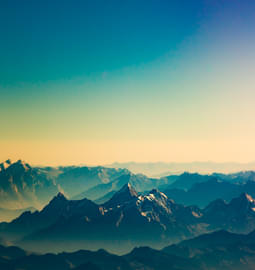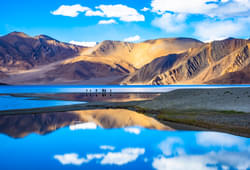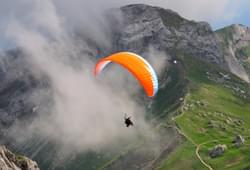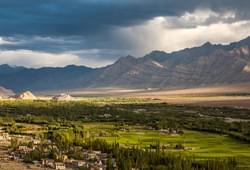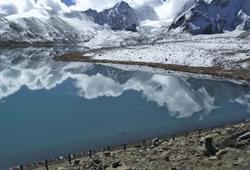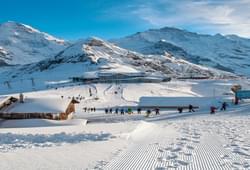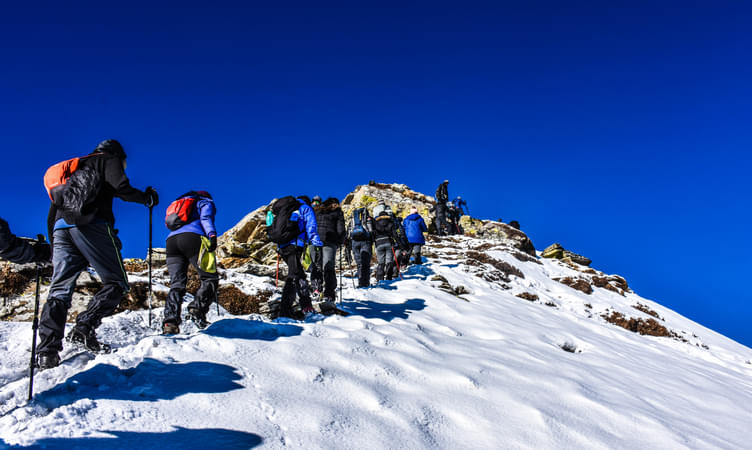
- 6D/5N
- Dehradun
- 6D/5N
Departure Dates:
December: 5,6,12,13,14,15,16,17,18,19,20,21,22,23,24,25,26,27,28,29,30,31,
January: 1,2,3,4,5,9,10,16,17,23,24,30,31
February: 6,7,13,14,20,21,27,28
Kedarkantha Trek Highlights:
About the Kedarkantha Trek:
For those of you who are looking for some thrilling adventure then Kedarkantha trek is perfectly made for you. Decorated with a beguiling magnificence of falling snow and bordered with pine trees, The Kedarkantha Peak is a standout amongst the most looked for after snow trekking destinations in India. You will start this trek from Dehradun which is another beautiful destination. The drive to Kedarkantha takes you through Mussoorie, and some of the scenic beauty of the region till you reaches Sankri.
During your trek, you will come across some of the majestic sights of the snow-capped Himalayas, the verdant greenery, lush landscapes, a myriad collection of flora and frozen ponds. As you continue your trek you will also see remote towns where ladies and children are busy taking, bundles of wooden logs, wooden sticks and dry leaves to use them for cooking and set up bonfires at night. Kedarkantha trekking package gives you that perfect trekking experience that you have been long waiting for.
About the Kedarkantha:
In the celestial like the state of Uttarakhand, lies the snowy delight of Kedarkantha trek which is another beautiful trek. Close to the famous Har ki dun valley, this place is lesser visited. Steeped in unsurpassed beauty, over here you find charming villages, vast stretches of meadows, snow paths and magnificent views of the great Himalayas. The people of the region are said to be friendly and follow a unique culture and practice. Uttarakhand, permeating nature’s glory offers a dramatic landscape dotted with lovely lakes, tranquil rivers, mountains and rising Himalayan peaks. This is one trek which should not be missed by the adventure seekers who loves to take some challenges. This trek is an ideal destination for the nature lovers to bask in the prettiness of intact nature and enjoy wonderful and heavenly moments with exhilarating experiences.
Best time to visit Kedarkantha Trek:
The best time to visit the Kedarkantha trek is in the months of December to April. The entire region is covered with sparkling white snow and the base of alpine trees is half-submerged with it. If the snowy mountains attract you then this the best time for you to witness the true beauty of nature. The months of June to September are the monsoon months and one must avoid trekking at this time. The trekking route remains open in the summertime but the beauty in the winter months is truly paradisiacal that makes it the best time to visit Kedarkantha.
Quick Facts About Kedarkantha Trek:
Temperature: Day: 8°C to 15°C and Night: -5°C to 3°C
Kedarkantha Trek Distance: 20 km
Maximum Altitude: 12,500 ft
Kedarkantha Trek Difficulty Level: Easy To Moderate
Railway Station: Dehradun is the nearest railway station
Airport: Jolly Grant Airport, Dehradun
Base Camp: Sankri (10 hrs drive from Dehradun)
ATM: Purola has the last ATM point before your trek begins.
Meals during Kedar Kantha Trek:
Everyday Snacks, breakfast, lunch and dinner (vegetarian) are included in the package
Stay during Kedar Kantha Trek:
Tent or Guesthouse stay on triple/quad sharing basis
Standard tents/Hotels/Guest House with attached washroom in Sankri
Alpine tents in Juda – ka - Talab
Alpine tents in Base of Kedarkantha
There are two different variants available with this package as given below:
Variant 1: Kedarkantha Trek Ex Sankri- Rs. 6000/- per person
Variant 2: Kedarkantha Trek Ex Dehradun- Rs. 8000/- per person
How to reach?
Haridwar has a railway station which is well-connected from all metropolitan cities and nearest airport is Dehradun - Jolly Grant.
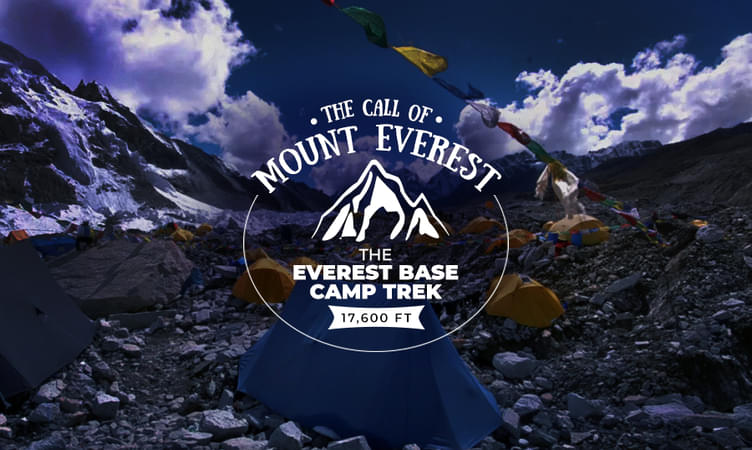
- 12D/11N
- Kathmandu
- 12D/11N
• Cost with stay in Kathmandu and airport transfers: INR 42,500 per person
• Cost with stay in Kathmandu, airport transfers and all meals: INR 58,500 per person
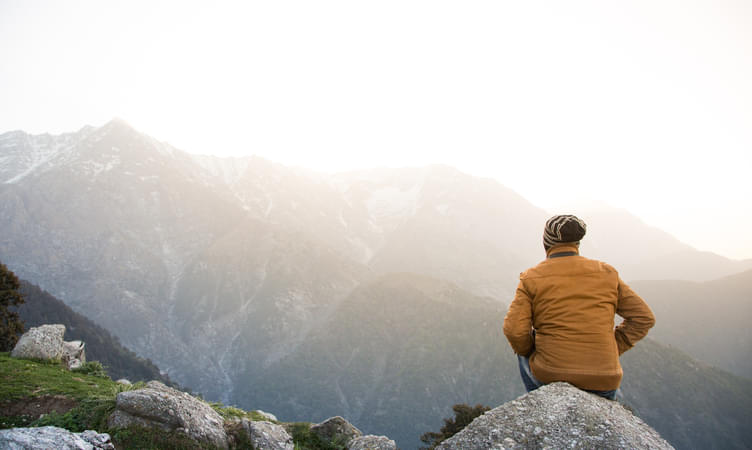
- 2D/1N
- Mcleodganj
- 2D/1N
Start/End Point: Bhagsu Nag Taxi Stand
Start/End Time: 09:000 AM (Day1) & 12:00 PM (Day2)
Camp Location: Leta/Mana village Village (2.5 km before Triund)
About Triund:
- Triund is the easiest Himalayan trek. With breathtaking views of the Kangra valley and the snow covered Dhauladhar ranges, it is also very picturesque.
- Triund is the ideal destination for those seeking a hassle-free taste of trekking in the Himalayas. The trek can easily be done over a weekend.
- The trail to Triund is short but steep. The steep climb is well-compensated by refreshing walks amongst rhododendron and oak trees. There are also various songbirds in the forests along the trail which make it a birdwatcher’s delight.
About the Triund Trek:
- Get a chance to witness the many small hamlets and stream through the trek to Triund.
- Feast your eyes at the majestic view of the Dhauladhar ranges on one side and Kangra valley on the other
- Enjoy camping at a high summit and the clear night sky under the billions of stars.
- Also, enjoy a small bonfire with your friends and the other trekkers in Alpine tents on double/triple sharing basis.
- Trek through some of the most beautiful forests of alpine and fir, Rhododendron and Oak.
- Get a chance to witness the rare flora and fauna of this region as you continue your Triund trek.
- Also, taste the local cuisine of this region while you head out for the trek to Triund.
Quick Facts:
Maximum Altitude: 9,432 ft
Difficulty Level: Easy
Electricity: Electricity is available at the campsite
ATM: Mcleodganj is the last point where you will find an ATM
Trekking Gradient: Steep throughout the trail
How to reach the campsite?
You have to report at Bhagsu Nag Taxi Stand which is the starting point of the trek and it is around 3 km from Mcleodganj. Many local transports and private cabs are available from Mcleodganj to reach Bhagsu Nag.
Note: If the snow at the top of base camp is beyond the operator's control, the camping for the day will be organized in Dharamkot instead.
Har Ki Dun Trek

This trek is known for the dominance of fragrant blossoms growing wild in June. Adventure-seekers can gain an amazing adventure, trekking through Osla to Har Ki Dun. Sankri, a point that enables the travellers to grab the awe-inspiring beauty of the Garhwal Mountains, is nestled at an altitude of 1950 feet. June is the best time to visit the Har Ki Dun Trek and treasure the memories.
Location: Reaching Har Ki Dun involves around 14 Km. ascent from Osla. It lies at the base of the Swargarohini Peak and the trekkers can enjoy the astounding beauty of nature around.
Altitude: 11,675 feet.
Duration: 7 days
Difficulty Level: Easy to moderate
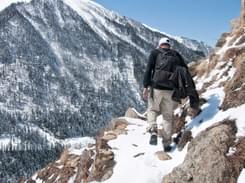
Valley of Flowers Trek

The visual pleasure that the Valley of Flowers Trek bestows the visitors with remains a lifetime asset for them. Valley of Flowers Trek is one of the most splendid treks to visit in June, and it is noted for as many as 500 varieties of flowers. This trek can bring you one of the most memorable journeys of your life.
It is located at the foothills of the Himalayas in the Garhwal region. The travellers can witness the mystical valley and the raw beauty of nature. In a nutshell, the Valley of Flowers Trek will present you with a delightful blend of serenity and quest.
Location: Trekkers can start at Haridwar and reach the Valley of Flowers Trek through Govindghat and Ghangaria.
Altitude: 14,400 ft
Duration: 6 days
Difficulty Level: Easy to moderate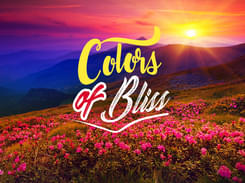

- 6D/5N
- 6D/5N
About the Sandakphu Trek:
The Sandakphu Trek is tucked away in the Darjeeling district of West Bengal and provides breathtaking panoramas of the highest peaks on Earth. It's rated moderate to challenging, so both beginners and seasoned hikers can enjoy it. The scenery is adorned by snow-capped peaks from Tibet, Bhutan, and Nepal. Being a part of Singalila National Park, you'll see a diverse range of animals and plants.
From Phalut, you may take in breathtaking views of the Everest range, which includes Makalu and Lhotse. Kanchenjunga, the highest peak in the "Sleeping Buddha" range, is a majestic and calming sight. The views of the sunrise and sunset from Aahl are quite amazing, particularly when the brilliant hues of the Everest cluster and Sleeping Buddha are reflected.
In the midst of the rhododendron and bamboo forests, you might spot exotic animals like the Himalayan black bear. With inviting hospitality and mouthwatering food included in Sandakphu trek package, it is the Indo-Nepali culture that enhances the trip. You can choose between Churpi and Dalle Khursani, two of the most popular authentic dishes.
Discover the turns of the Old Silk Road while taking in the warmth of the people. The area is dotted with magnolias and rhododendrons, which add to its picturesque appeal. Immerse yourself in local culture, marvel at breathtaking landscapes, and experience genuine hospitality on the Sandakphu Trek.
Departure Dates (2024)
March-6,8,9,10,16,17,23,24,26,30,31
April-6,7,8,12,13,14,20,21,27,28,29,30
May-4,5,11,12,18,19,21,25,26.
June-1,2,8,9,15,16,22,23,29,30
Quick Facts:
- Duration: 6D/5N
- Altitude: 11,930 ft
- Sandakphu Trek Difficulty Level: Moderate
- Sandakphu Trek Distance: 52 km
- Temperature: Day: 8°C to 15°C and Night: -5°C to 5°C
- Best Time to do Sandakphu Trek: March to May, October to January
- Nearest Railway Station: NJP
- Nearest Airport: Bagdogra
- ATM: You can withdraw money at New Jalpaiguri Railway Station (NJP).
- Starting Point: Manebhanjan/Chitrey
- Ending Point: Srikhola
Beas Kund Trek

For beginners, Beas Kund is the perfect Himalayan Treks in June. The trek is noted for the alpine lake sitting at a high altitude, at 3,700 meters. The attraction of the Beas Kund trek lies in the origin of the river Beas.
Besides, travellers can try out paragliding in this area. You can get a crystal-clear view of several majestic peaks, including the Shitidhar, Friendship Peak and Hanuman Tibba. Beautiful meadows of Bakarthach and Dhundi dominate the views. The Beas Kund Glacier lies across the way when you proceed towards Beas Kund. With mushrooms and wild strawberries ornamenting your path, you will love this June trek.
Location: The trek starts off from Solang Nallah and takes you through several meadows.
Altitude: 14,000 ft.
Duration: 6 days
Difficulty Level: Easy to moderate
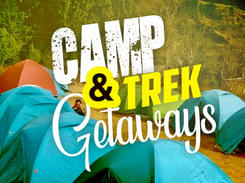
Bhrigu Lake Trek

The Bhrigu Lake Trek welcomes the visitors with extensive patches of snow even in June. As far as the sight perceives above, you can see the altitude mounting. Late in June, you might experience rain in the region, and the blue cover looks marvellous.
The Bhrigu Lake Trek is an easy trek and leads to the Bhrigu Lake, located in the Garhwal Himalayas, in the Kullu Valley. You will enjoy the sight of the seven sister peaks, the Pir Panjal mountains and Hanuman Tibba. Besides, the dense vegetation of oak and cedar add to the mood.
Location: The trek starts at Manali and continues through Gulaba and Rola Kholi, finally taking the trekkers to the lake.
Altitude: 14,000 feet.
Duration: 4 days
Difficulty Level: Easy To Moderate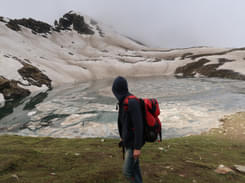

- 10D/9N
- 10D/9N
About GoechaLa Pass Trek:
GoechaLa trek is nestled at a height of 16,207 ft, with a closer look at the third-highest peak-Mt. Kanchenjunga. It is a dream and desire for hundreds of adventure lovers. Bounded by the mesmerizing flora and fauna, which are so vibrant and colourful to cheer up one's mood.
The GoechaLa pass trek is a bundle of big summits, making it an absolute adventure to embark on. The trail link with the famous Kanchenjunga National Park, where one can witness the true nature, enough to revitalize your senses. To watch the mountains clearly, April and May are the ideal months. Since the sky is completely clear during this time and the sunset-sunrise views can be captured.
Departure Dates (2024)
March-23,24,30,31
April-1,6,7,13,14,20,21,27,28
May-4,5,6,11,12,18,19,24,25,26.
June-1,2,8,9,15,16,22,23,29,30
GoechaLa Pass Trek Quick Facts:
GoechaLa Trek duration: 10D/9N
Maximum Altitude: 16207 ft
Difficulty Level: Difficult
GoechaLa Trek Distance: 90 Km
Temperature Range: April - June: 15 to 22 Degrees (Days); -1 to 7 Degrees (Nights), September – Nov: 10 to 15 Degrees (Days); -5 to 5 Degrees (Nights)
GoechaLa Trek Best Time: April end - May And September - November
Railway Station: New Jalpaiguri (NJP) is the nearest railway station, which is 150 km away from Yuksom
Airport: Bagdogra Airport which is 155 km from Yuksom
ATM: Yuksom is the last point where you can find the ATM.
Starting and Ending point: Yuksom
Kashmir Great Lakes Trek

This trek takes the travellers through some of the most spectacular lakes in Kashmir. The Kashmir Great Lakes Trek passes through high mountains like Gadsar and Nichinai. Besides, a number of streams and rivulets cross the path of the trekkers.
The most important attractions remain the lakes in this region, including the Dal Lake, Vishansar Lake, Gangabal Twin Lake, Satsar Lake and the Yamsar Lake. You can see the other peaks shrouded by cloud on this trek. Trees like birch and azure skies dominate the scenery. The temperature in June generally remains around 15 degrees.
Location: You can start from Srinagar and travel through Sonamarg, Shekdur, Nichinai, Gadsar, Satsar and Naranag and follow the trail.
Altitude: 13,800 feet.
Duration: 8 days
Difficulty Level: Moderate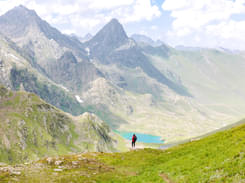
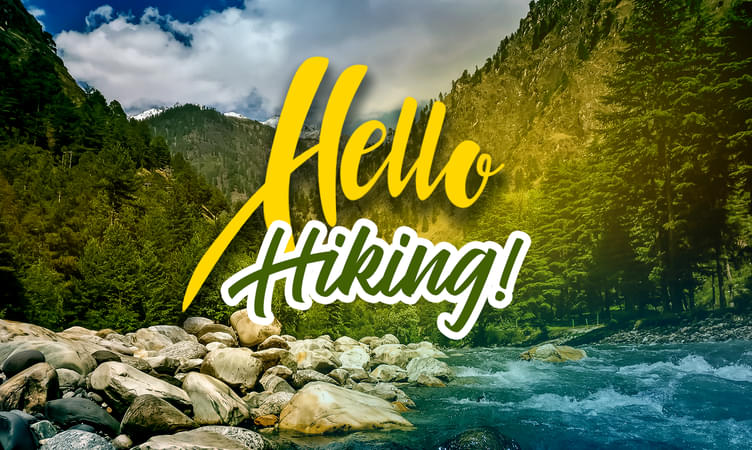
- 3D/2N
- 3D/2N
Meals during Kasol and Kheerganga Trek:
Note: All the pictures shown on the web page are for reference only & should be considered illustrative. It may not represent the camp that you will be allotted in actual. Some web pages may have an associated image of a particular camp. The Actual camp may vary due to a variety of reasons like availability, Quality, No of bookings, Maintenance etc. Thrillophilia reserves the right to change product images and specifications at any time without notice.
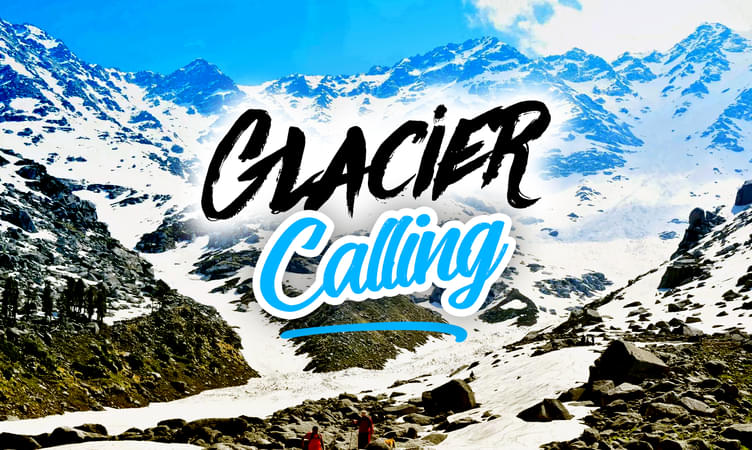
- 3D/2N
- Mcleodganj
- 3D/2N
This trek can be availed at any day in a month provided the group size is above 4 people.
Start Point/End Point: Mcleodganj - Bhagsu Nag Taxi Stand
Start Time/End Time: The trek starts at 10:00 AM on day 1 and ends around 02:00 PM on day 3.
About Triund and Laka Glacier:
Triund is the easiest Himalayan trek. With breathtaking views of the Kangra valley and the snow-covered Dhauladhar ranges, it is also very picturesque. The Triund and Laka Glacier trek exhibits stunning nature and offers a spectacular view of the entire Kangra valley.
About the Laka Glacier Trek With Triund:
Triund trek near Mcleodganj has gained vast amounts of popularity in the recent years for the scenic beauty and adventurous nature of the trek. Situated at a height of 9500ft above sea level, the views from the top of the Triund hill will never fail to mesmerize you with the sheer beauty of the entire valley in front of you. With a large number of travelers and adventure lovers trying on the trek, every year, this activity goes the extra mile and takes you to the famous Laka Got glacier, to have some fun and frolic before availing the chance of camping there. You will have a chance to stay in Alpine style tents on triple sharing basis.
Embark on this exciting Laka Glacier Trek expedition and get amazed with the breathtaking view of this region. Start your trek from Mcleodanj early in the morning while exploring the true and unspoiled beauty of nature hidden in the Himalayas till you reach Triund for the camping overnight. Explore the most popular and the perfect route on your trek to Laka Got Glacier, and upon arrival, play with the snow and make a snowman. Don't forget to take pictures. Enjoy the sights of vast green snow-capped capped mountains, while you set up camp here. End your tour by heading back to Mcleod Ganj with lots of memories.
Quick Facts:
Trekking distance: 13 km
Maximum Altitude:3,200 meters
Difficulty Level: Easy To Moderate
ATM: Mcleodganji is the last point where you will get ATM.
Group Size- Min 4 people
Hampta Pass Trek

The Hampta Pass Trek takes the travellers through some of the most splendid villages in Himachal Pradesh. This trek is moderately easy and is ideal for people who long to get an enthralling experience of a high-altitude adventure.
You will come across a number of beautiful valleys on the Hampta pass trek, like Bhalu Ka Ghera and Chika. Besides, the vegetation in this route consists of evergreen forests, and you would like striding your way across the deodars, firs and spruce. The picturesque villages nestled on the way include Jobri and Prerni. Well, you might be lucky to get a glimpse of the melting snow on the trek in some areas.
Location: The route starts from Manali and heads towards Pandu Ropa and moves on to Chikka and Chatru.
Altitude: 14,100 feet
Duration: 5 days
Difficulty Level: Moderate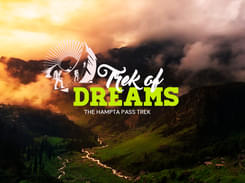
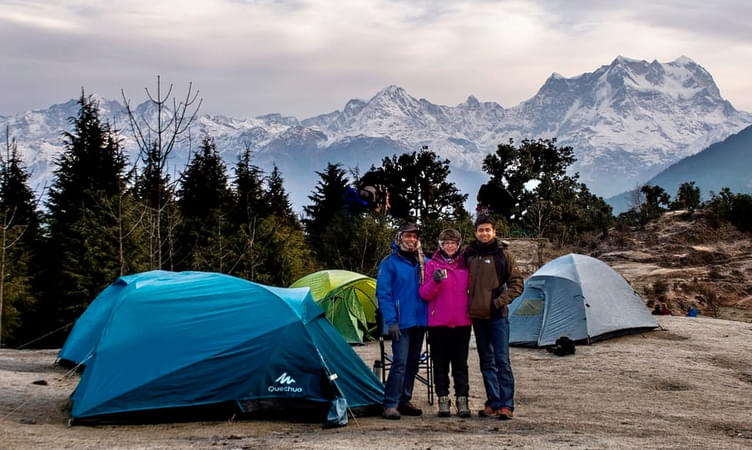
- 4D/3N
- Haridwar
- 4D/3N
For inquiry please call @ 7412020072
About the Chopta Tungnath Trek:
Tungnath trek is short and easy in the Chopta Tungnath trek which runs parallel to the sky-scraping Himalayan Treks. Tunganath is the highest temple of Garwal. During this hiking, one can enjoy a clear view of majestic peaks of Panchchuli, Nanda Devi, Nilkanth and Kedarnath. Chopta gives a picturesque view of the Himalayas. In the early spring, the Rhododendron forest glows red as the flowers bloom.
Your journey for the Chopta Tungnath trekking will start from Haridwar, in Haridwar will visit the famous Mandakini Valley, the river and lake. Then we will visit Chopta, which is surrounded by dense forests. From Chopta, we will start for Tungnath and Chandrashilla Top (Our last destination).
About the Destination:
Tungnath is always the starting point of the Chanadrashila summit trek which possesses a captivating beauty with the help of many deodar and rhododendron forests. Chopta has a myriad collection of pictorial sights to bewitch the visitors which is marvelously engulfed by huge vegetation in spring and summer. During winter it would be appealing to all eyes since the thick cover of snow will be an amusing part of the region.
The summit of the Chandrashilla peak provides a breathtaking 360-degree view. Views, which go far beyond the simple view of mountains.
Quick Facts About Chopta Tungnath Trek:
Temperature: Day: 8°C to 15°C and Night: -5°C to 3°C
Maximum Altitude: 11,154 ft
Chopta to Tungnath Trek Distance: 5 Km
Chopta Tungnath Trek Difficulty Level: Easy To Moderate
Railway Station: Haridwar is the nearest railway station
Airport: Jolly Grant Airport, Dehradun
Base Camp: Sari Village (6 hrs drive from Haridwar)
ATM: Last ATM is in Ukhimath, around 13 km before Sari.
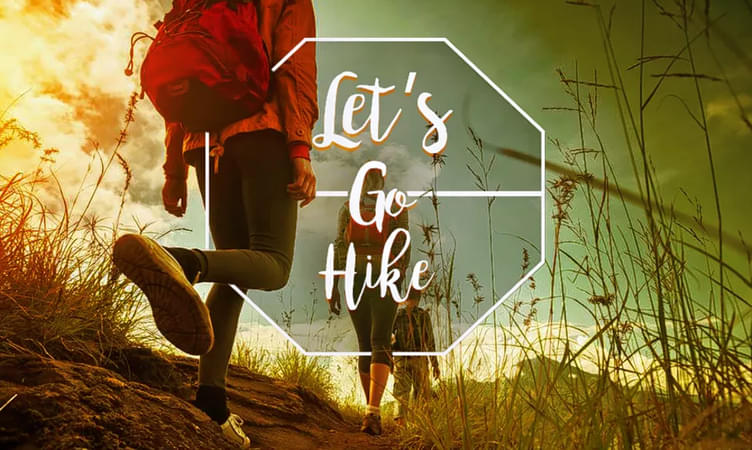
- 2D/1N
- Dehradun
- 2D/1N
Quick facts about Nag Tibba Trek:
- Nag Tibba Temperature: 14 to 22 degrees (days) and 6 to14 degrees (nights) between September and December and 16 to 25 degrees (days) and - 8 to 16 degrees (nights) during other months
- Nag Tibba Trek distance: 15 km
- Maximum Altitude: 9,910 ft.
- Starting and Ending Point: The trek to Nag Tibba starts and ends at Dehradun/Delhi depending on the variant you choose.
- Nearest Railway Station: Dehradun is the nearest railway station
- Nearest Airport: Jolly Grant Airport, Dehradun
- ATM: You will find ATM's in Mussoorie and Naianbagh.
- Nag Tibba Trek Difficulty Level: Easy
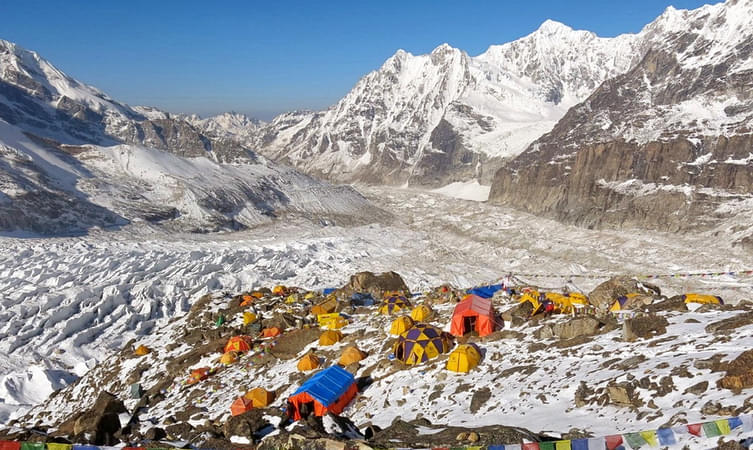
About the Kanchenjunga Base Camp:
Nestled in the beautiful state of Sikkim, India, Kanchenjunga is a mighty peak in the Himalayas that stands at an impressive elevation of about 8586 meters. Spanning across the boundaries of Nepal, Tibet, and India, Kanchenjunga is divided into three major sections - Main, Central, and South. Covering an area of around 7,000 meters, Kanchenjunga is known for its vastness and unique landscape. The trek to Kanchenjunga Base Camp takes you through pristine landscapes, dense forests, charming tribal villages, and glistening lakes. Escape from the hustle and bustle of city life and immerse yourself in the mesmerizing beauty of snow-capped mountains & scenic landscapes. Many Sikkim tour packages include guided explorations of this enchanting region, making it easier for travelers to experience the magic of the Himalayas.
Roopkund Trek

The Roopkund Trek is known for a high-altitude glacier. It remains covered under the snow for most of the time. However, the snow thaws in June and the trek attracts adventure-lovers in great numbers. Also known as the ‘Lake of Skeletons’, this is a popular hub for trekkers, as it has several mythological tales associated with it.
It is in June that the visitors can spot several skeletons (estimated to be five hundred in number) at the bottom of the lake. Keeping these stories apart, it is the vibrant colour of the lake and vegetation that strikes the innermost chord in the travellers’ hearts.
Location: One can reach the Roopkund Trek from Wan, Bagubassa and Bedni Bugyal, or take the route through Lohajung. The latter passes through Didna Village and Ghora Lotani.
Altitude: 16499.3 feet
Duration: 8 days
Difficulty Level: Moderate To Difficult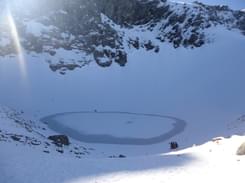
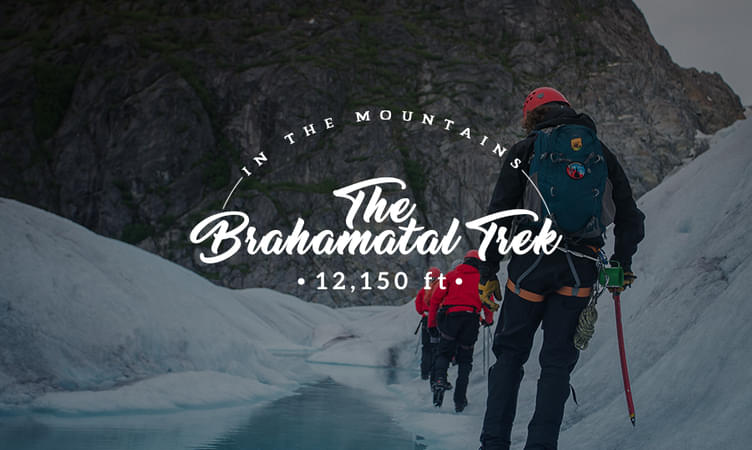
- 6D/5N
- Kathgodam
- 6D/5N
About the Brahmatal Trek:
Known as one of the most enchanting treks, the Brahmatal trek is a great winter trek for the nature lovers and adventure seekers. You will start this amazing trek from Kathgodam and make your way through some of the beauty of the region. Upon your arrival in Kathgodam early morning, you will be picked from the railway station or bus stand. You will be traveling for 9 hours to reach Lohajung which is 225 KM away from Kathgodam. By late afternoon, you will reach Lohajung where you will be staying at night in a guest house.
On second day of your Brahmatal trekking tour, you will be trekking from Lohajung to Bekaltal. En route, let your eyes enjoy some awe-inspiring views of Nandaghunti Peak. Trek through the forests of oaks and firs. Conclude the 4-5 hours long trek after you reach Bekaltal. The total distance you cover would be 8 km. On your third day, you will trek from Bekaltal to Brahmatal which is another of most beautiful rail for you. The trails go through a forest and when you reach Telindi top, behold the enchanting views of the mighty Himalayas.
On fourth day of your Brahmatal trekking tour, you will be covering from Khabekhal to Bhramtaal to Daldum. You will be treading along the tricky pathways which go through Chota Jhandidar and Bada Jhandidar. This trail is encircled by a mountain ridge with valleys on both sides. Catch the glimpses of magnificent Himalayan Ranges. Mt. Trishul is very close along with the views of Nandhaghunti. On fifth day of your Brahmatal trekking tour, you will be trekking from Brahmatal to Lohajung and trek through the same route. Then on your last and sixth day, you will take the trail from Lohajung to Kathgodam. The Brahmatal Trekking package is the perfect adventure that you have been long waiting for.
Brahmatal Trek Weather :
- Winters (December-February): This is considered to be the best season for Brahmatal trek. During these cold winter months, daytime temperatures of Brahmatal trek range between 0°C to 2°C. In the night, the temperatures fall to around -5°C to -10°C. The temperature inside the tent is better but can still be freezing at around 10°C.
Meals during Brahmatal Trek:
Breakfast, lunch and dinner (vegetarian) are included in the package
Stay during Brahmatal Trek:
How to reach?
Kathgodham has a railway station which is well-connected from all metropolitian cities and nearest airport is Dehradun - Jolly Grant.
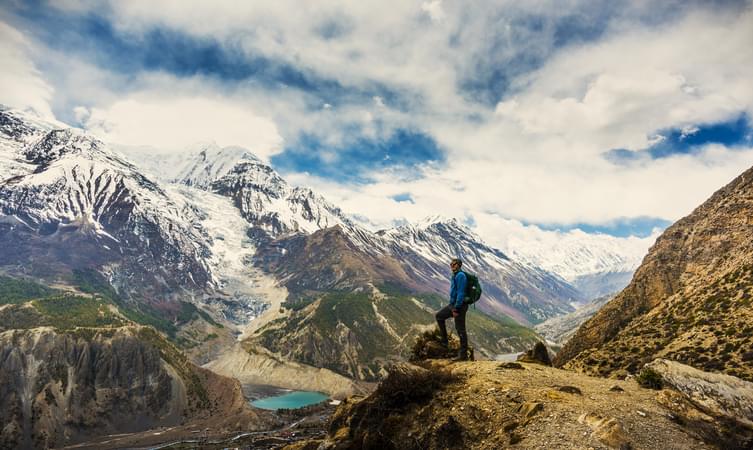
- 9D/8N
- 9D/8N
About the Annapurna Base Camp Trek:
The Annapurna Base Camp is perched on a cloud-piercing height of 13,550 feet in the northern region of Nepal. Starting from Banthanti, Annapurna Base Camp offers a stunning opportunity to relish the breathtaking heights of giant Himalayan ranges. The mountain ranges included in this tour bring you through oak, pine, rhododendron, and lush green rice fields engraved with a diamond-like carpet of snow amidst majestic slopes of misty valleys.
Since the Annapurna Base Camp Trek happens around a vast area of Annapurna Conservation Area,. You'll be walking across the Modi River and discovering some of the massive peaks at 7000–8000 m.
Annapurna Base Camp Trek Nepal Quick Facts:
- Annapurna Base Camp Trek Duration: 9D/8N
- Maximum Altitude: 13,550 ft
- Annapurna Base Camp Trek Difficulty Level: Moderate-Difficult
- Approx. trekking distance: 67 Kms
- Temperature: Day: 15°C to 20 °C and Night: 0°C to 5°C
- Best Time To Trek Annapurna Base Camp: Feb to May, Oct to Dec.
- ATM: Pokhara
- Start Point/End Point: Pokhara.
Stok Kangri Trek

Adventure and beauty come in a perfect mix when you set off to conquer the Stok Kangri Trek. This is among the best Himalayan Treks in June that you should go for. Well, scaling the peak is a challenging task, and it is more difficult than the ones that you have come across on the list so far.
Ascending to the top involves rope climbing, hiking and mountain trekking. Stok Kangri Trek is snowy in the month of June. Bird-watchers will find an extra dose of delight in this route. The monasteries in Ladakh remain one of the key attractions of the trail.
Location: You can approach Stok Kangri Trek from Sumdo. It further heads on to Shang Phu, Shang La and Matho La.
Altitude: 20,100 feet.
Duration: 9 days
Difficulty Level: Difficult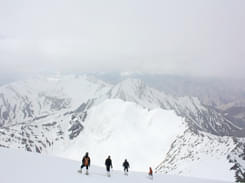
Prashar Lake Trek

If you are willing to start off your adventures with one of the easy Himalayan Treks in June, try out the Prashar Lake Trek. This is one of the most delightful locations in the Mandi region for spending weekends. The maximum altitude of the trek is around 8,956 feet, which makes it possible to scale it and get back in a few days.
Prashar Lake Trek passes through forests and several gorges, and you will love the sight of the villages that come along the path.
Location: For trekkers, the ideal route is to start off the journey from the Panarsa base camp.
Altitude: 8,956 feet.
Duration: 2 days
Difficulty Level: Easy
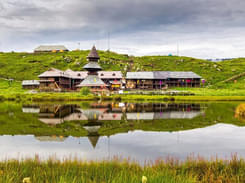
Chanderkhani Trek

The Chanderkhani Trek is located in Himachal Pradesh and takes the trekkers through a fascinating trail. You can get a mesmerizing view of the Pin Parvati and Deo Tibba ranges during the trek. The Chanderkhani Trek covers the amazingly beautiful Kullu Valley.
The trail passes through a forest, known to be the home of several species of birds and animals. It further crosses several small streams and gorges. This can be a bit strenuous for the beginners.
Location: The starting point of this trek is at Naggar. The Chanderkhani Pass is situated at an altitude of 11,811 feet. Then the trail moves forward to the Malana village.
Altitude: 11,970 feet.
Duration: 5 days
Difficulty Level: Moderate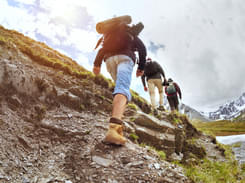
Markha Valley Trek

The Markha Valley is known to be the most popular trek in Ladakh. Besides, this is among the most explored Himalayan Treks in June. The trail runs through several dramatic landscapes. From high mountains to cold desert valleys, you will enjoy the varied landscapes as you march ahead on this trek.
Several Buddhist monasteries dot the trek and it takes the visitors through the Hemis National Park, where they can get a glimpse of the nomadic families, with their cattle. It is an amazing experience to trek the Markha Valley in June.
Location: The trail moves through three passes, the Kongmaru La Pass (5274 m), Stok La Pass (4848 m) and the Gandla Pass (4878 m). Then it moves on to the Markha River Valley.
Altitude: 16,830 feet.
Duration: 9 days
Difficulty Level: Difficult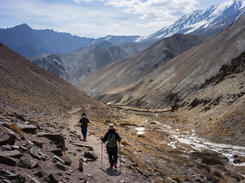
Indrahar Pass Trek

If you are willing to explore the Himalayan Treks in June, make sure to include the Indrahar Pass Trek in your list. Indrahar Pass Trek offers deep gorges, sparkling falls, forests of deodar trees and tranquil lakes spin a magic that can pamper your senses. The temperature remains pleasant, varying between 12 to 20 degrees during June.
One of the key attractions of the trek is the clear view of several peaks, including Arthur’s Seat and Moon. The Lahesh Cave remains the hub of adventurers for camping. You can visit the Chamba Valley and enjoy the breath-taking views of the Dhauladhar peak.
Location: The route commences off from McLeodganj and moves on through Triund, Lahesh Cave, Triund, Indrahar Pass and reaches the Chamba Village.
Altitude: 14245 feet
Duration: 4 days
Difficulty Level: Moderate to Difficult
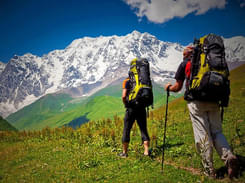
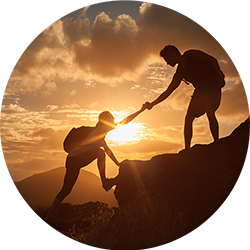
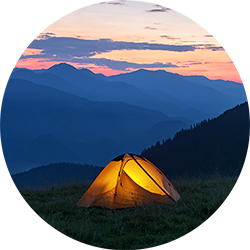
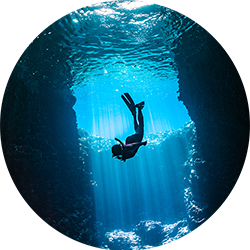


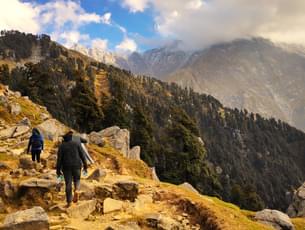




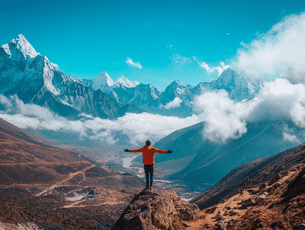

.jpg?w=305&h=230&dpr)


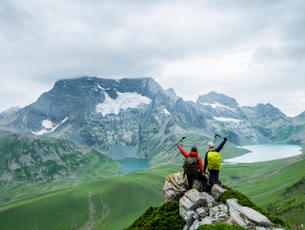



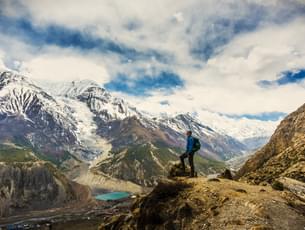

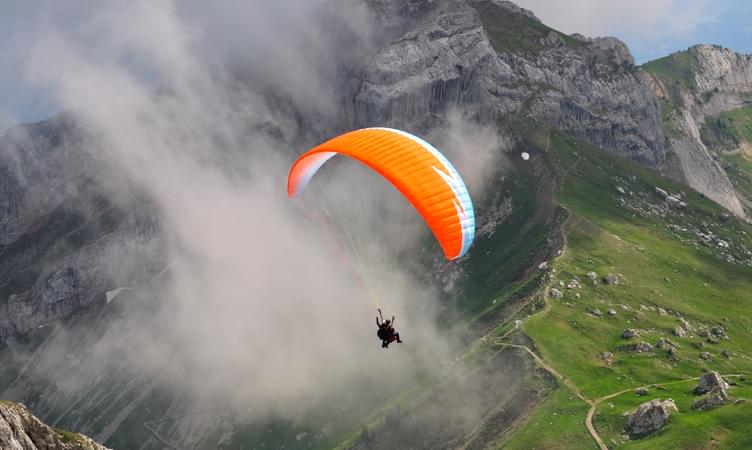

.jpg?gravity=center&width=90&height=90&crop=fill&quality=auto&fetch_format=auto&flags=strip_profile&format=jpg&sign_url=true)




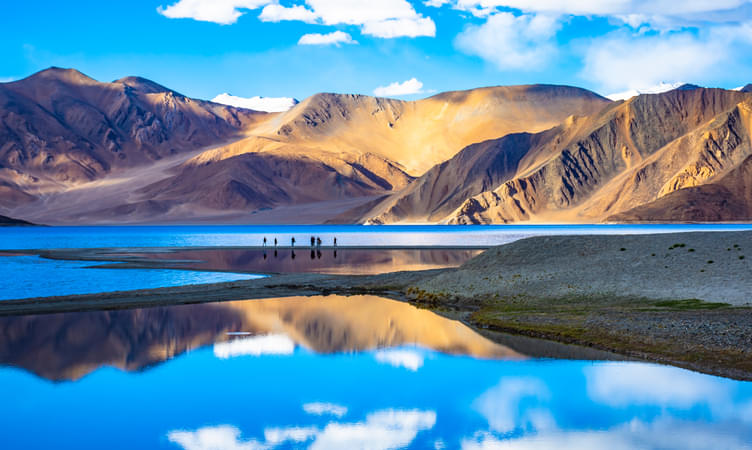






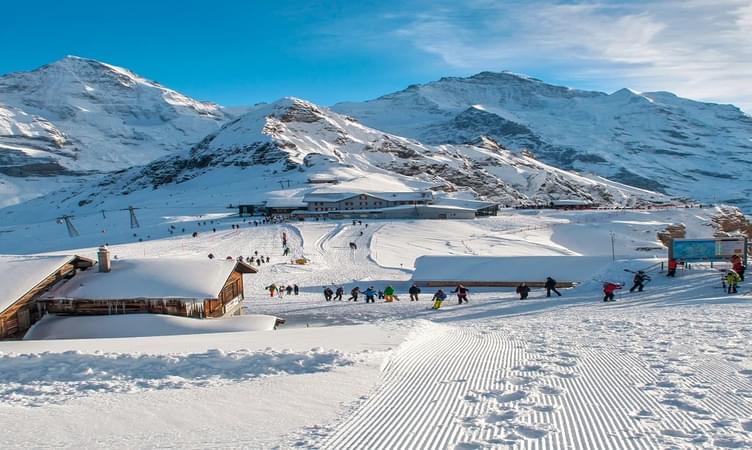






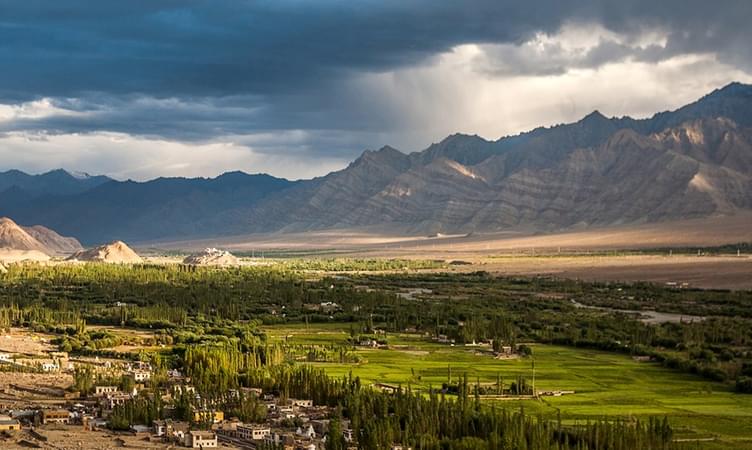






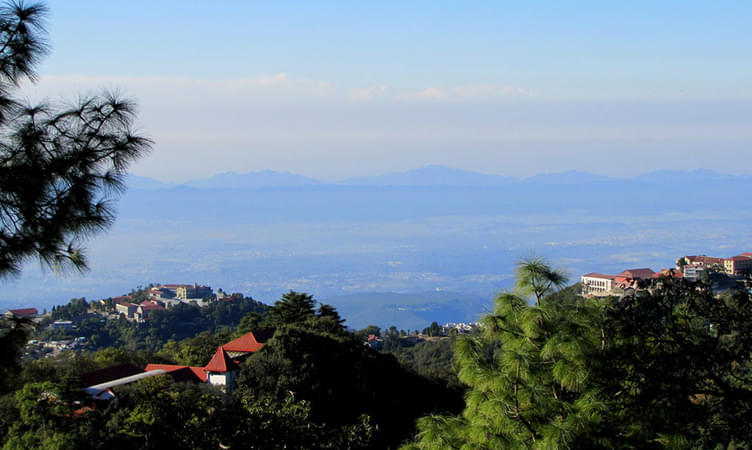






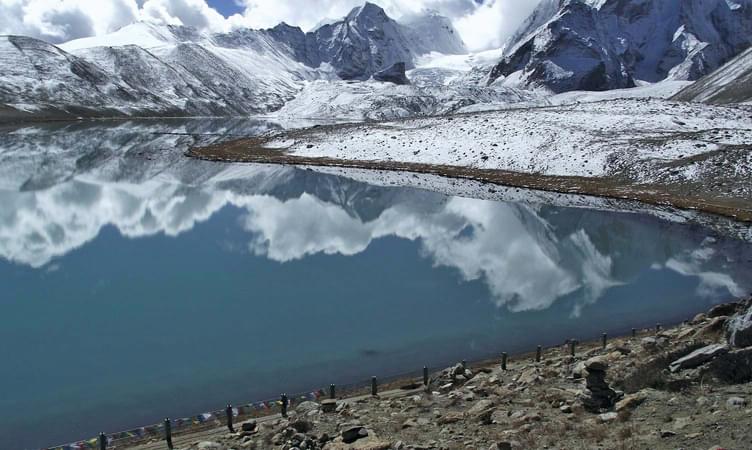






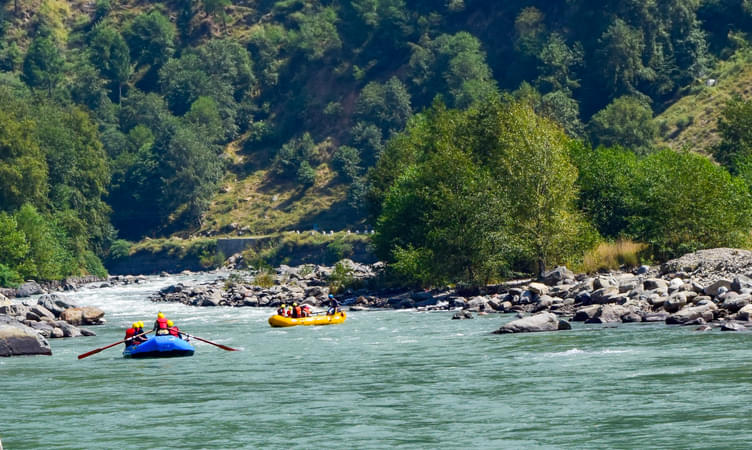






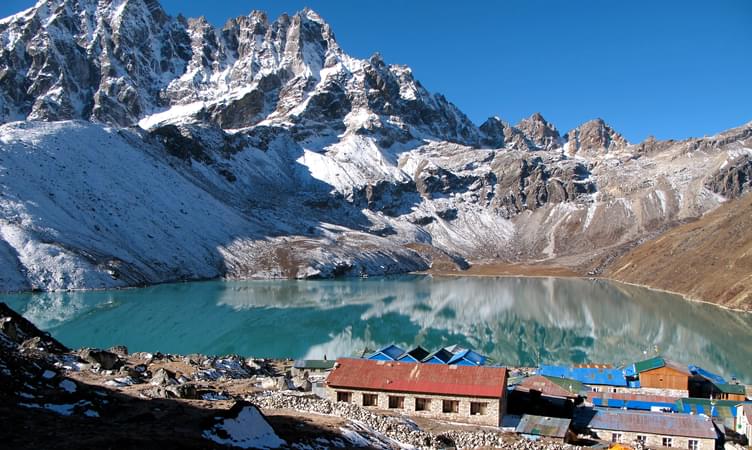






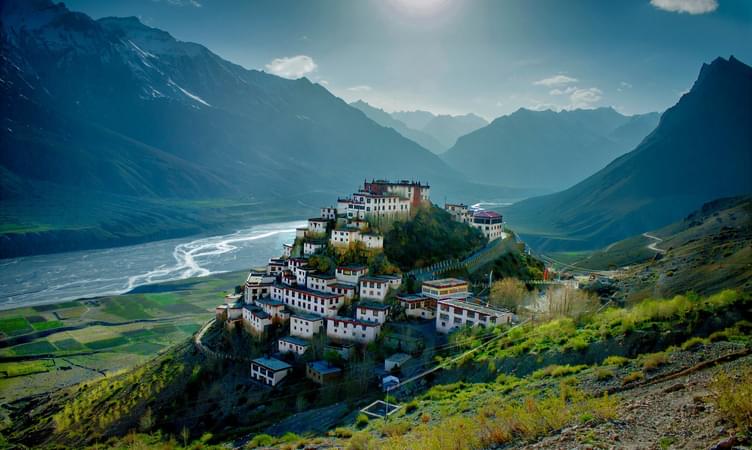






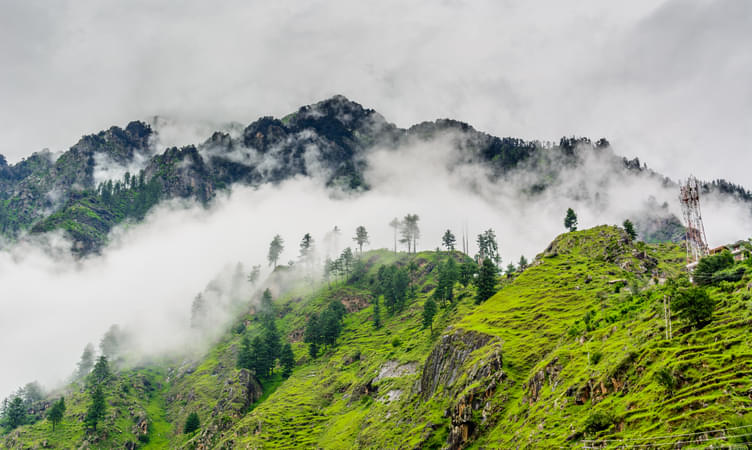
.jpg?gravity=center&width=90&height=90&crop=fill&quality=auto&fetch_format=auto&flags=strip_profile&format=jpg&sign_url=true)





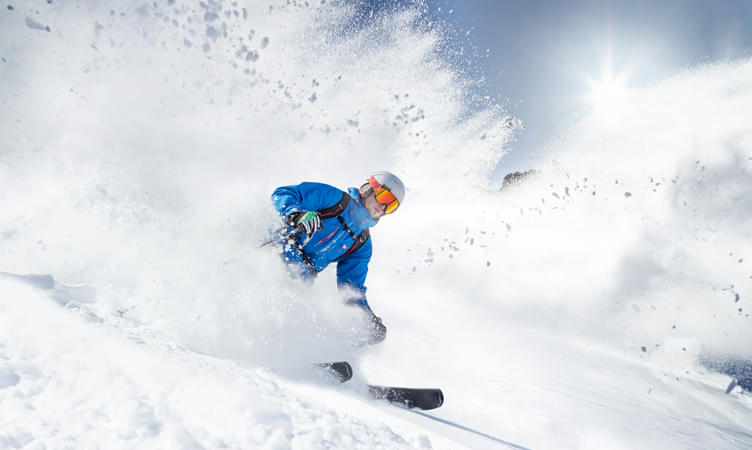





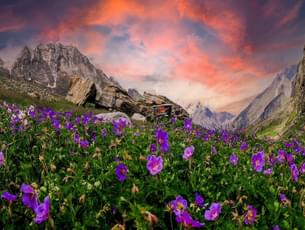
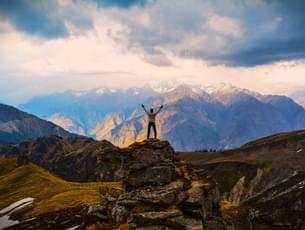
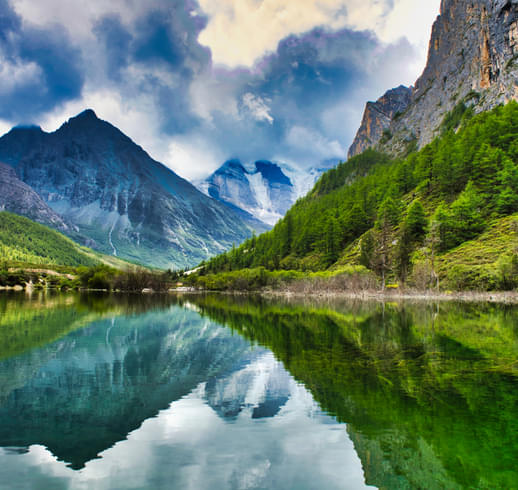

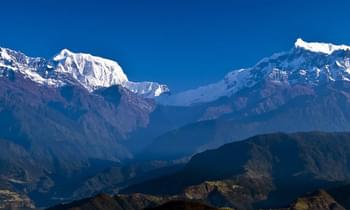
.jpg?w=350&h=210&dpr)
